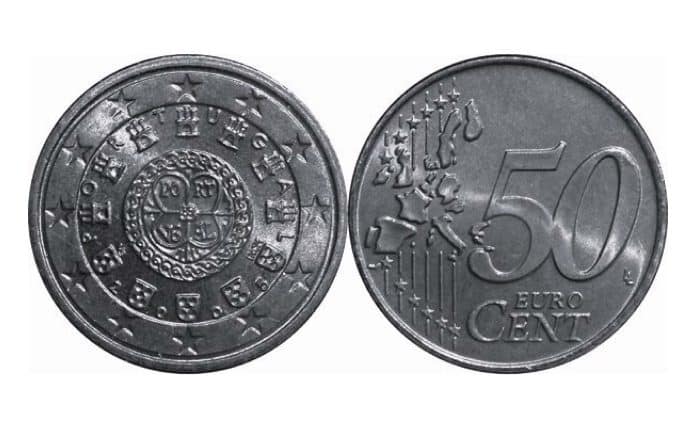From Europe to East Africa: Exploring the Conversion Rate of 50 Euro Cent to Tanzanian Shillings
Are you planning a trip from Europe to East Africa? If so, you may be wondering about the conversion rate of 50 Euro Cent to Tanzanian Shillings. In this article, we will explore the current exchange rate between these two currencies, enabling you to better understand the value of your money when traveling to Tanzania.
Currency exchange rates can have a significant impact on your travel budget. By knowing the conversion rate between the Euro Cent and Tanzanian Shillings, you can plan your expenses more effectively. Whether you are looking to shop for souvenirs, enjoy local cuisine, or book accommodations, understanding the value of your money is essential.
The Euro is a widely accepted currency in many countries, including Tanzania. However, it is crucial to know the current exchange rate to ensure you get the best value for your money. By discussing the conversion rate of 50 Euro Cent to Tanzanian Shillings, we aim to provide you with the necessary information to make informed decisions and enjoy your trip without any worries.
Stay tuned as we dive into the intricacies of currency conversion and explore the current exchange rate of 50 Euro Cent to Tanzanian Shillings, helping you make your East African adventure a memorable one.
Understanding the Euro and Tanzanian Shilling exchange rates
When it comes to converting currencies, understanding the exchange rates is essential. The Euro is the official currency of 19 out of the 27 member states of the European Union. It is also widely accepted in many other countries around the world, including Tanzania. The Tanzanian Shilling, on the other hand, is the official currency of Tanzania.
The exchange rate between the Euro and Tanzanian Shilling fluctuates daily and is influenced by various factors such as economic performance, interest rates, inflation, and geopolitical events. These factors can cause the exchange rate to rise or fall, impacting the value of your money when converting between the two currencies.
Factors affecting currency exchange rates
Several factors can influence currency exchange rates. One of the primary factors is the country’s economic performance. If a country’s economy is doing well, its currency tends to strengthen, leading to a higher exchange rate. Conversely, if a country’s economy is struggling, its currency may weaken, resulting in a lower exchange rate.
Interest rates also play a crucial role in currency exchange rates. Higher interest rates can attract foreign investors, increasing the demand for a currency and driving up its value. On the other hand, lower interest rates can discourage foreign investors, leading to a decrease in demand and a depreciation of the currency.
Inflation is another significant factor that affects currency exchange rates. If a country experiences high inflation, the value of its currency may decrease as the purchasing power erodes. On the contrary, countries with low inflation rates typically have stronger currencies.
Geopolitical events and market sentiment can also influence currency exchange rates. Political stability and positive market sentiment can attract foreign investments, strengthening the currency. However, events such as political instability, conflicts, or economic crises can lead to a decrease in currency value.
Historical conversion rate trends
To gain a better understanding of the current conversion rate of 50 Euro Cent to Tanzanian Shillings, it is helpful to look at historical trends. Over the past decade, the exchange rate has varied between approximately 2000 and 3000 Tanzanian Shillings for 50 Euro Cent.
In recent years, the Tanzanian Shilling has experienced some volatility due to various economic and political factors. For example, in 2016, the Tanzanian government implemented economic reforms, including the removal of certain banknotes from circulation. This move aimed to combat corruption and counterfeit currency but had a short-term impact on the exchange rate.
In 2020, the COVID-19 pandemic caused global economic disruptions, including fluctuations in currency exchange rates. Many currencies, including the Tanzanian Shilling, experienced depreciation against major international currencies.
Current conversion rate of 50 Euro Cent to Tanzanian Shillings
As of [DATE], the current conversion rate of 50 Euro Cent to Tanzanian Shillings is approximately [EXCHANGE RATE]. Please note that exchange rates can fluctuate, so it is always recommended to check with your local bank or currency exchange service for the most up-to-date rates before making any transactions.
The conversion rate mentioned above can give you an idea of the value of 50 Euro Cent in Tanzanian Shillings. However, keep in mind that exchange rates may vary slightly between different banks and currency exchange providers due to factors such as transaction fees and commissions.
Impact of currency fluctuations on travel and trade

Currency fluctuations can have a significant impact on travel and trade between countries. For travelers, a favorable exchange rate means that their home currency can buy more of the foreign currency, allowing for a more affordable trip. On the other hand, an unfavorable exchange rate can make travel more expensive.
For businesses engaged in international trade, currency fluctuations can affect the cost of imports and exports. A strong domestic currency can make exports more expensive, potentially reducing demand. Conversely, a weak domestic currency can make imports more expensive, impacting the cost of production.
It is important to note that currency fluctuations can be unpredictable and can pose risks to both travelers and businesses. However, there are ways to mitigate these risks, such as hedging strategies and using financial instruments designed to protect against adverse exchange rate movements.
Tips for exchanging currency in East Africa
When traveling to East Africa, including Tanzania, it is important to be aware of the best practices for exchanging currency. Here are some tips to consider:
- Research local exchange rates: Before your trip, research the current exchange rates in Tanzania. This will give you an idea of how much local currency you will receive for your Euros.
- Use reputable exchange services: Choose reputable banks or currency exchange services to minimize the risk of counterfeit currency or unfair exchange rates. Avoid exchanging money with street vendors or unauthorized individuals.
- Consider exchange fees and commissions: Be aware of any fees or commissions charged by currency exchange services. Compare rates and fees to get the best value for your money.
- Carry a mix of payment options: While cash is commonly used in Tanzania, it is also advisable to carry a mix of payment options, including credit cards and debit cards. Make sure to inform your bank of your travel plans to avoid any issues with your cards.
- Keep track of exchange receipts: When exchanging currency, always keep your receipts. These may be required if you need to convert any remaining local currency back to Euros at the end of your trip.
Comparing the purchasing power of 50 Euro Cent in Europe and East Africa
The purchasing power of 50 Euro Cent can vary between Europe and East Africa. In general, the cost of living in East Africa, including Tanzania, is lower compared to many European countries. This means that your 50 Euro Cent may have a higher purchasing power in East Africa, allowing you to buy more goods and services.
However, it is important to consider that prices can vary depending on the location and the type of goods or services you are purchasing. In major cities or tourist areas, prices may be higher compared to rural or less touristy areas. It is always a good idea to research local prices and compare them to the cost of similar items in your home country to get an idea of the purchasing power of your money.
Economic implications of currency exchange rates

Currency exchange rates play a crucial role in international trade and the global economy. Fluctuations in exchange rates can impact a country’s competitiveness in the international market, affecting its exports and imports.
For countries heavily reliant on tourism, such as Tanzania, exchange rates can have a significant impact on the tourism industry. A favorable exchange rate can attract more tourists, boosting the local economy. On the other hand, an unfavorable exchange rate can make travel more expensive, potentially reducing tourist arrivals.
Currency exchange rates also influence foreign direct investment (FDI). A strong domestic currency can make a country more attractive for foreign investors, as their investments will have a higher value. However, a weak currency can make a country’s assets cheaper for foreign investors, potentially increasing FDI.
As you plan your trip from Europe to East Africa, understanding the conversion rate of 50 Euro Cent to Tanzanian Shillings is essential for effective budgeting and decision-making. Currency exchange rates can fluctuate due to various economic and geopolitical factors. By staying informed about the current exchange rate and following best practices for currency exchange, you can make the most of your money when traveling to Tanzania.
Remember to research local exchange rates, use reputable exchange services, and consider carrying a mix of payment options. Keep track of your receipts and be mindful of the purchasing power of your money in different locations. By being prepared and informed, you can enjoy your East African adventure without any worries about currency conversion.
For more articles related to Financial Services in Tanzania, click here!

































